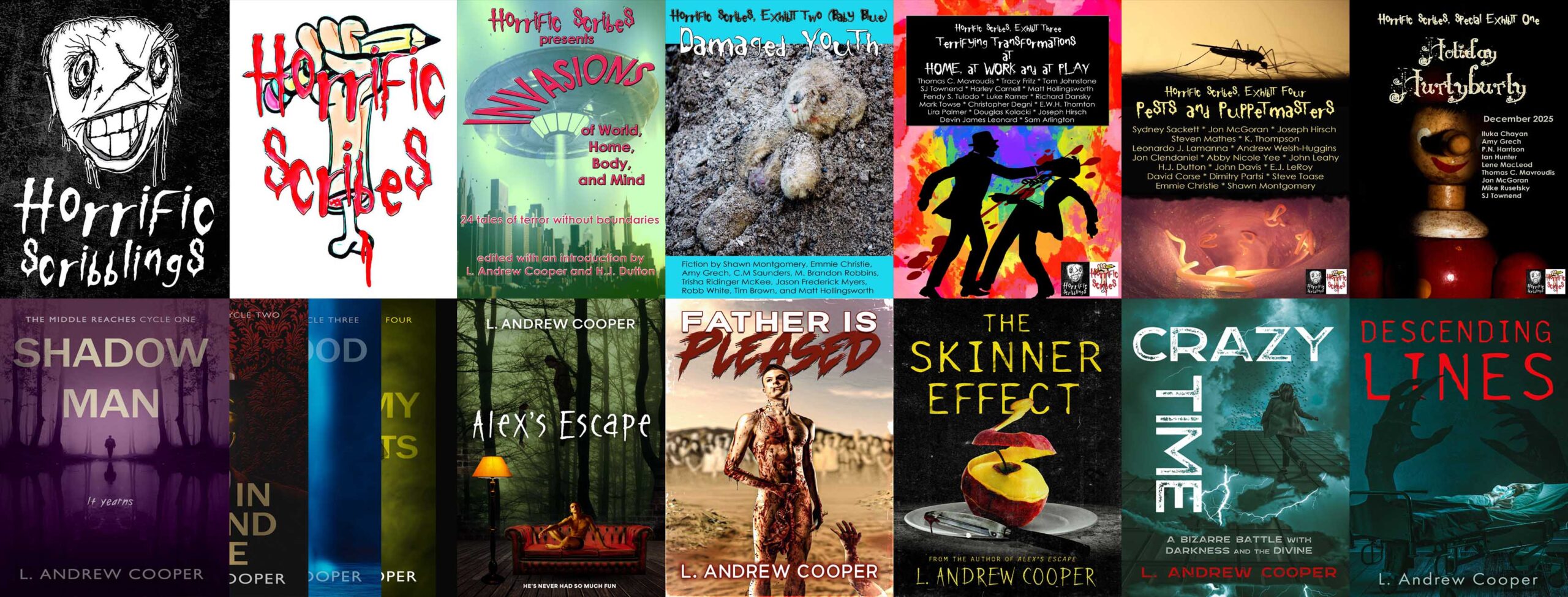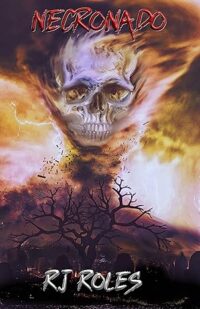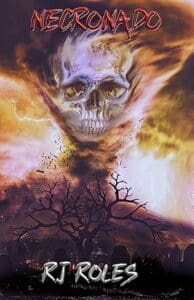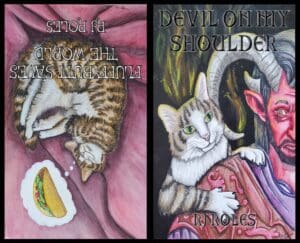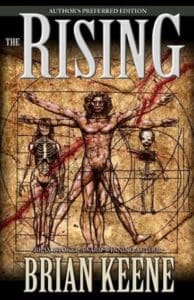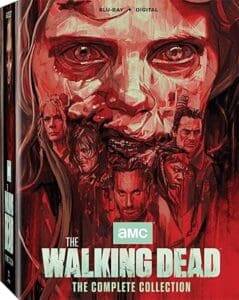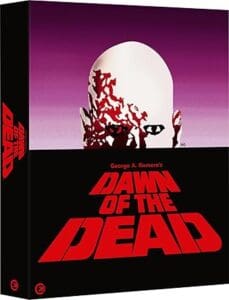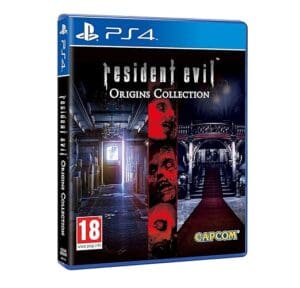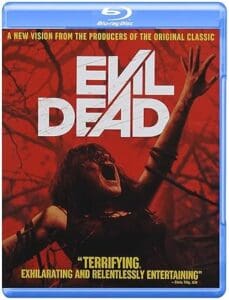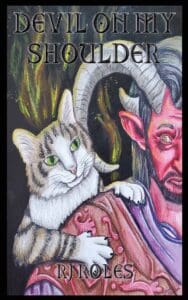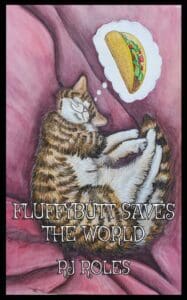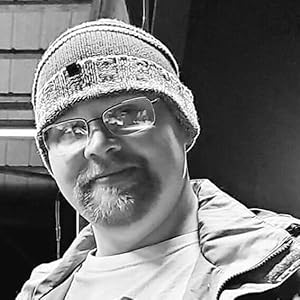Horror community standout RJ Roles talks about the many special ingredients he twists together in his zombie horror novel Necronado and then examines the dark charms in two of his tales/tails of the inimitable feline Mr. Fluffybutt.
Necronado
The sleepy town of Lordsland is rocked by a baffling storm, leaving the residents mystified by its origins.
As the day progresses, an insidious evil leaves the entire town scrambling in a battle against the newly awakened dead.
Part Necro, Part Nado: All Death and Destruction.
Who will live, and who will join the shambling horde of undead?
2-fur-1 Fluffybutt Tales
A brand new back-to-back book for your reading enjoyment.
In “Devil On My Shoulder,” Lucifer’s wife nags him to go start the apocalypse, toward which he is accompanied by his faithful companion, Mr. Fluffybutt. Will they succeed in their mission? Why must they go to Ohio? And ask yourself, Who is the devil on the devil’s shoulder?
“Mr. Fluffybutt Saves the World” is a “tail” about when a hankering for tacos goes wrong. Tasked with catching up on work around Hell, Lucifer has to let Mr. Fluffybutt find other avenues when he wants to throw down for some tacos. After he enlists Randy, the unlikely duo are roped into a world-ending plot. Can they stop the mastermind aiming to destroy humanity? Why can Randy see and talk to Mr. Fluffybutt when everyone else can’t? Do they get the tacos?!
The Interview
Necronado
1. Part Nado. Other Nados? We’ll get more into movies in a moment, but your title and premise—though I would argue, generally not your attitude—echo, um, the overnight camp film classic Sharknado (2013). Is this echo intentional? If so, in what ways is Necronado like Sharknado? If not, what do you think of the echo? The echo makes me question your book’s tone, whether and when you’re being tongue-in-cheek. How serious is Necronado? Should readers be on the lookout for irony? Why or why not? Jake, one of the main characters if not the main character, is a writer, and writers in stories often signal a kind of narrative self-consciousness. If that’s the case here, what kind of self-consciousness does Jake represent?
RJR: With Sharknado, I wouldn’t say any echoing was intentional since I’ve never seen it or any of its many, many sequels. My title and the story’s premise came from a conversation I had with a friend about a tornado pulling up bones from buried pets around his yard. As for the shifting in tones, I feel that’s just life, right? Any given situation will elicit a mix of emotions from people, and as a writer I tried to live in the characters’ heads and give their honest reactions to what was going on around them. But how serious is Necronado? I would say equal parts silly and serious right up until the end (IYKYK). Touching on irony, I think that’s definitely built into my personality and comes through in my writing. Hopefully the reader picks up on it and understands what’s happening when they go to read it. Jake the writer is definitely struggling when the book starts. He needs to provide for his family, and the only way he’s going to do that is to write his next masterpiece to sell. I feel that’s something any writer struggles with, despite where they are in their career. Is it worth it? Am I any good? Am I just wasting my time with all of this? What if everyone hates this? These are some of the things that enter a writer’s mind a lot of the times when they’re struggling, and they turn inward to try and work it out. Jake is just an on-page manifestation of myself, and many others, in that way.
2. Small Town Zombie Horror. The sleepy town of Lordsland is one of those where everybody seems to know everybody, and, when the time comes, some people seem to know almost every body. More typical zombie scenarios involve strangers thrust together by the undead crisis, people brought together in a farmhouse, mall, etc. What drew you to the small-town approach? How do you think putting names on so many corpses changes the horror? Some of the hordes are faceless, literally and figuratively, especially as their numbers grow, but overall, do you think Necronado’s small-town, ensemble approach makes zombie encounters more personal? Why or why not?
RJR: The small-town approach came directly from my upbringing and current life. I have never lived in a big city, so with Necronado, I was writing what I know. I also feel having the smaller setting where almost everyone knows their neighbors packs a lot more punch into a horror story when something bad happens to one of them, which is also amplified but using the names of people the characters know. It’s hard to pull the trigger when you have a shambling, undead old lady you’ve literally known your entire life, but you do what you have to do to survive. Once the odds become overwhelming and you lose that intimacy with individuals to a large, swarming horde, the fear level stays just as high but in a different way. Having a group come together over time, all fighting for the same thing, lends a lot of relatability to the reader, and it’s pretty standard now in zombie fiction, I suppose, because there is strength in numbers. It gives the author and reader both a chance to develop relationships with the characters and, for better or worse, foster an attachment with them.
3. Zombie Zealot Horror. One of the first plotlines to develop involves a schoolteacher who likely suffers a psychotic break after seeing the encroaching dead. She takes her religious fervor to the extreme of wanting to purify children by sacrificing them to undead appetites. What inspired this plotline? The term “zombie apocalypse” is common for a reason—at least since Romero’s early films, the appearance of zombies in a story has usually signaled a potential for the end of the world, with implied (or perceived, by characters) Biblical significance. How does your inclusion of psychotic zealotry reflect on this tradition in zombie storytelling? How does it reflect on religious zealotry more generally? Which is scarier—a zombie or a religious zealot ready to kill children for their beliefs?
RJR: There’s always one in every group, right? Someone who, when the shit hits the fan, will start to be a doomsayer and try to make others see that the only path forward is through zealotry. As far as Mrs. Nelson goes, she’s definitely modeled after Ms. Carmody in Stephen King’s The Mist. She’s a powerful character in that book, and she’s stuck with me ever since I read it. I think having a character like Nelson included in this book works on a few levels. On one hand, it’s a bit ironic to the reader when Nelson is yelling about judgement coming down on them all when the reader knows exactly how this all came to be after the prologue. On the other, it shows how crazy people can get when they think all hope is lost. There is a time and a place for everything, religion included, especially during an end of the world scenario, but it’s when people cross that line, go the extra step and take it into zealotry territory that it becomes a whole other scary situation for those around them to deal with. You asked, ‘Which is scarier—a zombie or a religious zealot ready to kill children for their beliefs?’ Ah, which is scarier, indeed? 😉 For me, people. Always.
4. Family and Relationship Horror. You use many characters’ perspectives to tell your story, but five major characters stand out to me: on one hand, you present the family consisting of Jake, his wife Marie, and their son Alex, and on the other, you present hardboiled leader Lilly and her doomsday prepper ex-lover L.T., who obviously have unresolved issues. In a way, then, family and relationships are at the center of your story. Did you plan it that way? Why or why not? How did writing from the perspectives of the people in these relationships affect you emotionally, and how do you think experiencing these perspectives will affect readers? Whose perspective is easiest to identify with? Whose is most difficult? Why?
RJR: Family was definitely in mind when the idea for the story was first thought about. When speaking with the same friend about tornados and pet bones, he told me about him and his family sheltering in their bathtub one night when a tornado came through their area (and that exact scene made it into the book). Had it just been Jake on his own, what were the stakes? What would he have to live for? The family aspect is integral to the story. Switching between characters who have their own POVs of a situation can be a challenge at times when writing, but I think that adds to and enriches the creative process, allowing you to dive into different sides of the same situation and work through different feelings about what’s going on. It makes you a better writer. Switching into the POVs of kids may have been the hardest for me because I had to get my mindset right and make it feel authentic. Tap into what it would be like being so young and having their world crash down around them. Hopefully that came through on the page. And the flipside, I don’t know if she was the easiest character to write, but Christina was absolutely the most fun character to play with because all rules were off the table with her. She could do or say anything, and it would make sense for her character. Writers should not have that power, lol. Perhaps there is a solo Christina story out there waiting to be told. Perhaps.
5. Media Zombies I: The Anxieties of Influences. When I was reading your “Prologue,” I thought maybe I was watching an early Michele Soavi movie, or maybe a little earlier in the Italian undead cycle, visiting Lucio Fulci at his peak, but then the curse-causing-ritual made me think of Roger Corman’s Lovecraft adaptations from the 1960s and 70s, which made me think of Corman’s factory movies on the SyFy Channel, where an adaptation of your book would fit… and of course while reading I was always thinking about George A. Romero and Max Brooks and Brian Keene and… how freaking scary is it to write in territory that has involved so many great names so recently? Your book refers to zombie movies frequently. How much of this referencing is about homage, and how much is about acknowledging that you’re in well-walked territory, and you know your stuff? What specific zombie works influenced you the most? What do you consider to be essential zombie reading and viewing?
RJR: Walking in the footsteps of greats certainly can be daunting, but you have to put your head down and commit. Think outside the box, bring something new to the sub-genre, and hope it doesn’t suck when you finish the book. If you’re picking up on anything in Necronado that makes you think of a zombie movie, I was definitely giving nods to the books and movies that I’ve enjoyed, skirting that fine line of not overdoing it with too many, which can take the reader out of the story if they pick up on it. Zombie fiction that has formed me into the creature you see today would be The Rising by Brian Keene, The Walking Dead (TV show), Dawn of the Dead (both original and remake), Resident Evil (games), Left4Dead (games), and Evil Dead (Is it zombies? I think so.) which I use for a direct comparison when talking about Necronado if you think about the prologue of the book. All of these should be on everyone’s reading, viewing, and playing radars if they want to be entertained.
6. Media Zombies II: The Benefits of Influence. Luckily, you and your readers aren’t the only people who are familiar with zombie fiction across media. Your characters are, too. Although they’re properly shocked and horrified that a zombie outbreak has occurred, your characters know what’s happening because zombies in books, movies, and video games exist in their universe. Some characters either already know or quickly figure out, for example, to aim for headshots because they’ve seen enough movies. What is/are the relationship(s) between zombie fiction and zombie reality in the Necronado universe? If a storm of the undead hits, do you think those us who have played the Resident Evil franchise will be better able to defend ourselves? Why or why not? In general, are people who expose themselves to horror in fiction better prepared when horror appears in real life?
RJR: The characters in Necronado would be the same if you or I would be thrown into a similar situation. We know what zombies are through all the media mentioned, so I wanted to have that aspect as grounded in reality as zombie fiction could be. I absolutely think people well-versed in Resident Evil will have a leg up on your average Joe off the street. You’ll know what you’re seeing (hopefully before it’s too late) and be able to deal with the undead through resourcefulness and knowledge. I’m just not sure how useful ink ribbons will be in real life. As to people who read, write, watch, and play horror media, I can see both sides of whether or not they’ll be better prepared in horrific situations. You can train and train and train for any number of scenarios, but it’s still not real until it actually happens. Speaking for myself, I can write blood and gore all day, but if I saw it in my everyday life all of the sudden, I know for a fact I would not be able to handle it with as much grace as I would hope to. But things change when life and death are on the line, so you really can’t say until shit goes down.
7. Zombie Typology. Somewhat famously among horror nerds, Romero’s film that birthed the modern zombie, Night of the Living Dead (1968), doesn’t use the word “zombie” but does use the word “ghoul.” Necronado has a diverse lexicon for its undead, with so many names for “zombie” that watching the variety becomes an entertainment (I like the bureaucratic edges of “expired person” and “once-alive residents”). Did you brainstorm a list in advance that you could draw from while writing? If not, how did you keep up the variety? Of course, zombies are more than their names. Horror nerds often debate the virtues of slow versus fast zombies, for example; characters comment on yours not being fast, but yours do lurch and climb over each other in ways that typical slow zombies might not. Typical zombies don’t show emotion, but yours show malice, perhaps more like demonic zombies (cf Lamberto Bava’s Demons films or Brian Keene’s Rising novels). What is your zombie’s profile? What is the ideal type of zombie for the 2020s?
RJR: 90% of my writing is off the cuff, with the other 10% being thinking about where my current scene is going when I’m not able to be working on it, so a lot of the terms I used came to me in that moment. I try to mix it up and not overuse certain words if I can help it, which keeps them impactful. Sometimes it is hard, though, and I will sit and stare at the screen while I cook something up. It slows progress but is hopefully better in the grand scheme of things as I go along. Ah, yes, the age-old debate of fast versus slow zombies. I’ll take both, thank you! I guess in Necronado they’re a bit of a hybrid but definitely lean more toward the slow side. Slow but capable. I tell people my zombies are not the typical ones and more of a supernatural undead since they don’t really spread through virus and biting but more through death. There’s definitely some Keene aspect to that, but they’re not demons, and they’re on a timer. For modern zombie fiction to be successful, I think the creator has to come up with an interesting hook to draw the audience in. Really give them something they haven’t seen before since there is such a long lineage of the sub-genre coming beforehand. That said, though there are a lot of zombie tales that have already been told, they haven’t been told through your voice, remember that.
2-fur-1 Fluffybutt Tales
8. Feline Personality. I might sum up Mr. Fluffybutt as the talking cat who associates (cats are not “owned”) with Lucifer, ruler of Hell, but who, and what, is Mr. Fluffybutt really? How would you describe his personality? His sense of humor? His mettle as a protagonist in your connected, perilous tales of slaughter and delicious food? One last thing… how strategically does he use the fact that not everyone can see him?
RJR: Well, I’m a cat guy, and I don’t think that’s any surprise to anyone who follows me on Facebook. Originally, Mr. Fluffybutt was conceptualized as the devil who would be on the Devil’s shoulder, and naturally I came to the conclusion it would be his cat. Fluffybutt is about the most laid back, nonchalant cat you could (not) meet, and I feel a lot of myself bleeds through with his character. There are a few things added in there, but he’s definitely me on the page, humor and all, someone who likes to chill out, have a good time, and find some good eats. As to his lack of reaction to a lot of things that go on around him, that might be me as well, a fault of mine, but it also adds a dichotomy to the scenes in which it’s happening, so I like the way it reads on the page. As to him using the fact that no one, aside from a select few, can see and interact with him, it gives Mr. Fluffybutt the freedom to do or say whatever he wants, which is probably very relatable to readers who wish we had the same ability.
9. A Laidback, Casual Kind of Hellfire. Lucifer lives in an almost ordinary-seeming domestic situation with his wife and Mr. Fluffybutt, and the apparent ordinariness extends to Lucifer’s duties related to torture, communication with other higher powers, and potential apocalypses. Mr. Fluffybutt seems particularly inclined to take world-ending hellfire in stride. Why? What’s the significance of finding hellfire, horrific slaughter, and the possible end of everything kind of… meh? Just another day in Ohio? Just another ambitious mastermind? Do you share Mr. Fluffybutt’s blasé feelings about the end of the world? Why or why not?
RJR: I love the super playfulness and audacity of putting Lucifer in a domestic situation where he’s essentially working a 9-5 as the ruler of Hell and only wants to hang out with his cat and play some games or something. That is the foundation I have set for myself with writing these stories—have as much fun as I can. Fluffybutt stories act as a respite for me from my typical writing of horror, and all bets are off with them. They have no rules and can be as crazy as I want them to be. It’s freeing as a writer, and I recommend it to others when they find themselves struggling. I think within every cat lives a Fluffybutt—to sow chaos. It’s not malicious, just in his, and their, nature. It opens things up for things to get hairy quick. On the flipside to that, you have Mr. Fluffybutt who, at his core, is pretty ambivalent to what’s going on around him. Except when it comes to Ohio. Ohio sucks. Is Mr. Fluffybutt truly an evil mastermind? I cannot say at this time, but the idea for his next “tail” is brewing in my head for when I’m ready to write it. But as I said, F.B. reflects a lot of myself, and I’m a very come what may type of guy, so yeah, his feelings toward the end of the world would probably bum him out a bit since it would probably hamper his plans for his next tasty treat.
10. Access! How can readers learn more about you and your works (please provide any links you want to share)?
RJR: First, I want to thank you, Andrew, for all the work and support you do for your fellow Indie Horror Authors. That’s real hero stuff giving others a platform to be seen and heard. If anyone would like to find more of my work, they should visit www.rjroles.com, where I have all my books listed (solo and published anthologies featuring the works of many other great authors). They can also find me on social media platforms like Instagram, TikTok, and Facebook by searching my name, RJ Roles. I will follow you back if you do. Necronado is currently available everywhere named Amazon in paperback, hardcover, ebook, and Kindle Unlimited. 2-fur-1 is currently only available at live, in-person events that I’m at, or from my online store rjroles.bigcartel.com when they’re in stock. My next release should be available by March of 2025, a brand new short story collection I’ve been compiling and working on while putting together anthologies and a few other projects that are in the works.
About the Author
From 100 word drabbles, to full-length novels, RJ Roles is an author who takes pride in his various works of horror fiction. He is the founder and admin of the Books of Horror Facebook group and founder of From the Ashes. His stories span the entire horror genre, as well as its sub-genres, and his pen often dips into many inkwells, creating unique, boundary-crossing tales. He lives a quiet life with his wife and many cats in southern West Virginia. Find him on his website www.rjroles.com.
